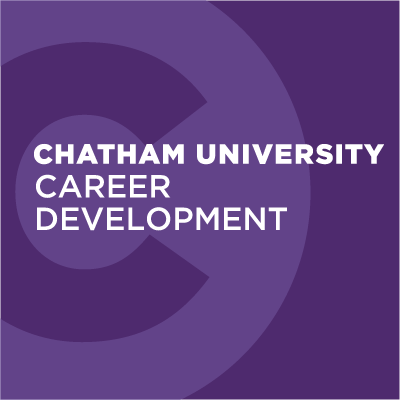Required internships make students more marketable — but at what cost?
Interns gain invaluable skills, but added stress, pay cuts and homelessness highlight equity gaps.

March 17, 2021
Some Chatham University students fulfill the undergraduate internship requirement the way they navigate tuition: with financial aid and monetary support from family. Others juggle the added workload of multiple part-time jobs in order to afford living expenses.
With two new scholarships, Career Development is furthering accessibility to internships, though questions about class, labor and the extent of practical support for student interns from the University remain.
During this time of year, students are usually busy filling out their Learning Agreement forms as Chatham typically offers a discounted price for summer internships. Normally costing $934 per credit in the fall or spring, the reduced rate per internship credit in the summer used to be $150. According to the Student Accounts office, the price per credit is listed as $200 this summer.
The purpose of requiring students to complete an internship for credit is to facilitate post-graduate opportunities and encourage experiential learning. For students pursuing them, Career Development organizes job fairs and networking events, connects students on Handshake (an online networking platform) and provides resume and cover letter feedback.
As stated by a 2015 National Association of Colleges and Employers report, students who have completed an internship are 20% more likely to get job offers than those who have not.
“If you can’t demonstrate that you know how to apply what you’ve learned in the classroom to a professional job, it’s less likely you’re going to get a job and even a smaller percentage that you’re going to get a job in the area that you want,” said Lesli Talley, associate director of Career Development.
Students like Josh Weiland ‘21 and Ava Roberts ‘22 said they benefited from their internships and developed skills directly related to their majors.
A connection to hands-on experience, professional networks

Weiland, a non-traditional sustainability student, interned for the Allegheny Land Trust last summer, where he assisted in the management of an acid mine remediation site in Washington County.
“It was kind of the perfect pandemic internship,” Weiland said. “I was the only intern and I kind of got to hang out at this park for 12 weeks, just taking care of it and implementing aspects of the management plan, and still got to come home every night to my family.”
As a Gateway student, he spent five years working in the environmental and nonprofit scene around Pittsburgh before coming to Chatham.
“I’m fortunate that I have the network that allowed me to get [the internship],” he said. “I definitely can see if you don’t have a mentor relationship with a professor that’s really bringing you along, critiquing your resumes, and ushering you in and giving you that boost up, it’s really, really hard.”
Meanwhile, Roberts found her internship with PennEnvironment through the job search website Indeed.com after volunteering with the organization in the past. The opportunity offered plenty of hands-on experience in her field, and Roberts is now using it to grow her professional network in local politics and environmental policy, she said.
Despite these positive outcomes, Weiland and Roberts said some of Chatham’s internship rules complicated their experiences.
Stress and financial burdens
Roberts’ internship, like those offered by most nonprofits, was unpaid. Roberts was also employed as a part-time phone banker for a political campaign during her internship in the fall 2020 semester.
“I wouldn’t have been in a financial position to do an unpaid internship if I hadn’t had that job,” she said.
Weiland had to quit his full-time job working for an environmental nonprofit in order to fulfill the internship requirement. At the time, Weiland and his partner were expecting a child — it was “non-negotiable” for him to obtain a paid internship, he said.
“We ran into a lot of issues where students have tried to use their current employment as an internship,” Talley said. She explained that the expectations set forth by current jobs often contradict the internship learning objectives required by law and by the University. Learning objectives are established to benefit the student, rather than the employer.
Roberts said the paperwork and check-ins from Career Development seemed to be redundant.
While weekly reflections and discussions with her advisor helped her stay grounded, the surveys and post-assessments assigned by the internship coordinators took time she said could have been used to study for finals or work on other internship tasks.
“It kind of makes it less about my own professional self-interest and it makes it more about scrambling for this deadline Career Development needs,” Roberts said.
Should internships be required?
Currently, Roberts is completing a second internship, but believes Chatham should ultimately remove the requirement. Roberts would prefer for internships to be optional, she said, instead of students having to complete one to graduate.
“You shouldn’t have to pay Chatham to not get paid by your internships,” Roberts said.
According to former student Terra Teets ‘19, the requirement is here to stay.
“I think it’s very valuable, especially in the humanities, to get that professional experience and develop those connections,” she said.
In Teets’ view, the structure also needs to change to address equity gaps between students. One step would be to offset the cost of internships.
Teets completed a summer internship as a first-year at a nonprofit in her hometown. The position gave her a firm sense of what she wanted to do (teach and help underserved communities) and what she would steer clear from in the future (a high-powered, over-demanding position). She garnered skills she said later helped start her own business and made connections in local politics.
At her internship, Teets made $150 a week, but her internship learning agreement made no mention of what hours she would be expected to work. At 20 hours a week, this stipend would average out to $7.50 an hour. Interning for 40 hours a week would have meant she was being paid $3.75 an hour.
She worked longer than the typical 40-hour per credit requirement, she said. The executive director, a former White House intern for whom she also worked part-time outside of her internship, would call her during unpredictable times after work.
At the time, Teets envisioned a path in politics. This “D.C. mentality” seemed normal, she said.
“He kind of viewed the people who worked as his personal assistants.”
According to Talley, students who have negative experiences with their internship sites should contact Career Development so the listing can be removed from Handshake. Teets found her internship outside of Handshake, having worked for the executive director in high school.
During the second half of her internship, which drained her savings, Teets was also homeless.
She did not address her housing situation with her internship supervisors or with Career Development out of fear it would reflect negatively on her professional and academic competencies.
Teets felt that she needed to perform as a “high-classed person,” she said, putting on a “positive face and showing up and doing the work” to avoid potential judgement, which she had faced before.
Scholarship opportunities and advisor advocacy
Two new scholarships offered this year will potentially help some students pay for these required internship credits. The first, which should be accessible this summer, is a one-time scholarship sponsored by State Farm for two students in need who will be working unpaid internships. The second is a recurring scholarship funded by an alum donation. It will be made available for student interns tentatively this fall.
At one point as an undergraduate student, Teets tried to form a support group for first generation college students, similar to RISE, where issues like the internship requirement and its implications could be discussed among students from similar backgrounds.
The idea was shot down by a Student Affairs staff member, Teets recalled, who said that such a group could be potentially discriminatory because it would be singling students out. According to Teets, similar groups have been established at other universities.
About being an under-resourced student pursuing an internship, Teets said, “You’re going to be held to the same standard. As if you didn’t need to pay for your living expenses. As if you weren’t working pretty much a second job, that ends up being three jobs. Sometimes you even need to work full time.”
Aside from the logistical and academic information Career Development provided, Teets had no idea if and how the office could help her concretely. She thinks an extra layer of support within the department may be helpful for students, not only to touch base about the professional aspects of an internship, but also to go over how the position would align with day-to-day living, including students’ work schedule, housing arrangements and budget.
“I learned the hard way to ask those questions. And now it’s something I know how to do. But, at the time, I was a freshman in college, and I didn’t know how to do that,” Teets said.
According to associate professor of history Lou Martin, Ph.D., one of the roles of an advisor is to advocate on behalf of the student and to brainstorm if hours extend beyond agreed-upon expectations, the employer has unreasonable demands or there is a lack of educational experiences.
“If, for example, I hear from a student that their experiences are not matching what we thought it was going to be, we can make adjustments in the moment,” he said.
The University paperwork is also there as a protective measure.
Martin explained that within the context of labor laws, interns — who work temporary, often unpaid positions — occupy an ambiguous space. Organized labor efforts and collective bargaining offer negotiating power for workers, but most paid interns don’t qualify as employees, with some exceptions existing under the Fair Labor Standards Act. When they do, they don’t stick around long enough to benefit from or participate in labor efforts. This makes it easier, though not always, for interns to be exploited.
“That’s why we have students identify learning outcomes. And that’s why we insist on getting a job description from the organization,” Martin said.
The future of internships at Chatham
Requirement or not, the experience students gain during an internship is critical to their marketability. Martin argued that the internship requirement should not be eliminated. Rather, students should be fully supported to find ways to incorporate the internship in practical ways that work for them, within their four-year college plan.
By keeping the requirement, others argue that some students may feel rushed to complete an internship to graduate in as little time as possible, or struggle to meet the deadlines before the add/drop period.
“It just kind of felt like it was something I needed to get out of the way so I would have space to complete other things and work to build up my savings,” Teets said.
On the other hand, eliminating the requirement altogether would inherently put some students at a disadvantage.
“I also believe that the students who come out of an upper-middle class background, whose parents and family members already have contacts in professional fields, have a great advantage over these unreached, under-resourced students,” Martin said.
“I think that this internship could be critical to getting that first job, getting that foot in the door, and I would hate to see us deprive a student of that, with the idea that we’re somehow helping them,” he continued.
“The Chatham community should ensure that students are paid a livable wage,” Teets said, “and that students can not only survive, but thrive.”
To find Career Devlopment’s requirements for internships, students can look to Career Development’s page on my.chatham.edu. To view information about the summer 2021 scholarship, students can visit the application page.








Molly Ritter • Mar 23, 2021 at 10:55 am
Great job, Irina and Elena! Beautifully written and very balanced. I do want to point out that the question is not whether experiential learning is good for students. That point is not up for debate. The question is who shoulders the costs of that experiential learning? I argue that employers should be responsible for the costs associated with training their workers. The only reason this isn’t the standard is because enough universities, like Chatham, are willing to provide employers with scores of cheap interns. If universities would stand behind their product and say no to internships, employers would have no other choice but to hire inexperienced but educated candidates and train them. And workers could earn while they learn.